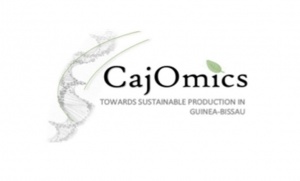
Email
fimonteiro@fc.ul.pt
H Index of Web of Science
13
H Index Google
17
Web References
Scopus •
Google Scholar •
Orcid •
Research Gate •
Environmental Stress & Functional Ecology - ESFE
Filipa Monteiro
External Collaborator
Sustainable agriculture Plant genomics Tropical diversity Agrobiodiversity
Filipa Monteiro (FM) studied Biology at the University of Évora and completed her PhD in 2012 on Biology at the University of Évora, in collaboration with the Institute for Systematics Botany, University of Zurich on the plant genomics applied to the study of pollination biology in orchids. Presently, FM is a Postdoc researcher (SFRH/BPD/114664/2016) currently working in the Tropical Plants and Systems Sub-Group of Environmental Stress & Functional Ecology (ESFE) Research group of cE3c. Also, FM is a member of research centers Biosystems & Integrative Sciences Institute at University of Lisbon (BioISI/UL) and Linking Landscape, Environment, Agriculture and Food (LEAF), Instituto Superior de Agronomia (ISA). Also FM is the Principal Investigator of the Research Project entitled: “PTDC/AGR-PRO/5727/2014, CajOmics-Characterizing and monitoring cashew economically important diseases in West Africa as a prospective measure for sustainable production: a case study on Guinea-Bissau”, funded by Fundação para a Ciência e Tecnologia, Portugal. FM has participated in several projects in collaboration with national and international researchers.
Presently, Filipa Monteiro’s research interest is focused on Tropical Biodiversity, Genetic Resources at genomics level, Sustainable agriculture & Food Security, Plant molecular genomics, and Agrobiodiversity. She has practical and theoretical experience ranging from fieldwork to molecular-based laboratory.
Filipa's primary interest is in the use of molecular approaches, together with traditional methodologies and ecological information’s, as a tool to study agrobiodiversity and sustainable production on agricultural ecosystems. She also actively works on plant adaptation to biotic stresses on in situ populations, using integrated molecular technologies and top line genomic approaches.


